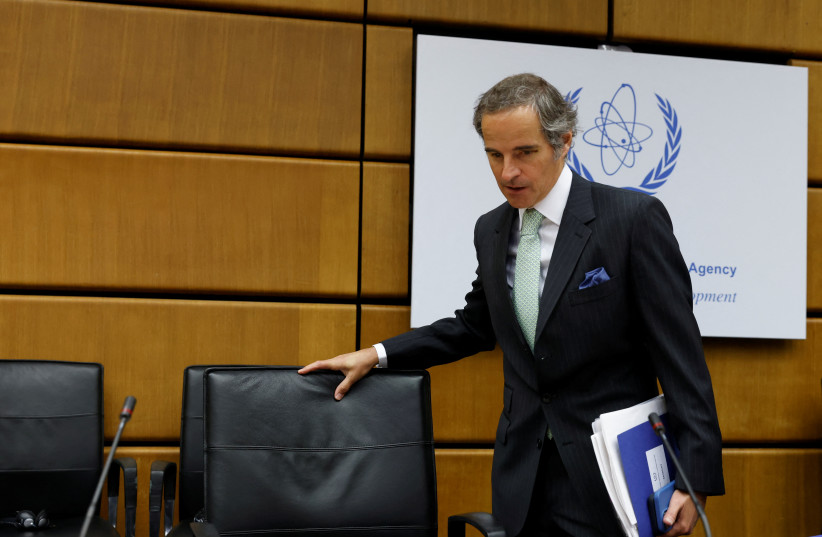We may never know the full extent of the conversations between IAEA Chief Rafael Grossi and Prime Minister Naftali Bennett. However, Grossi made it very clear on Monday what he wanted the world to take from the meeting.
Grossi completely brushed off Israel’s recent campaign to embarrass Iran when Jerusalem highlighted the Islamic Republic’s campaign to hack the IAEA’s internal documents.
It was not entirely clear how effective this campaign was with the Biden administration, but it has caused no discernible harm.
It is also possible that Grossi is trying to save face for his agency. But at least according to Grossi, the bombshell that Israel unveiled about the Iranian hacking of IAEA internal documents was irrelevant to the present.
This was because it only related to issues from 2004-2005.

It was surprising that Grossi was strongly dismissive of the entire saga; it was as if he wanted to pretend that the same top Iranian officials – like Iran Supreme Leader Ayatollah Ali Khamenei and a number of others – are not directing policy in 2022 the same way they were in 2004-2005.
In any event, Grossi’s message was that the visit to Israel should not be overplayed.
Downplaying Grossi's visit
This was already evident last week, when the IAEA did not give any advance notice that it would be visiting Israel. And, unlike Bennett, it did not issue any statements during or after the visit.
In fact, had Grossi had not held the press conference on Monday, he may never have said anything about the visit to Israel at all. When asked by the press about the visit, he merely said the IAEA is supposed to visit everywhere – as if Israel was not particularly relevant.
Still, he did say there was an explicit message for Bennett: Let us do our job. In other words, Grossi, likely to some degree, begged Bennett to reduce the recent level of Mossad and IDF operations against Iran with the hope that, if he did so, he might gain greater cooperation from Tehran.
He seeks to address past nuclear military programs and possibly questions regarding rejoining the 2015 JCPOA nuclear deal.
Bennett’s message did not seem to indicate that Israel is particularly interested in turning down the heat on the Islamic Republic before it feels it has achieved concessions from Iran.
Of course, in some ways, this sidesteps the question of whether the IAEA will send the Iranian nuclear issue to the UN Security Council.
The impression that the US gave in the press conference last week is that condemning Iran at the IAEA meeting is the first shot at a new phase of diplomacy.
It would seem that the Biden administration would like to give Iran a month, if not months, to “come to its senses” and cut a deal to return to the JCPOA.
However, the US spokesman last week also showed a new readiness for conflict with Iran.
This suggests that referring the issue to the UN Security Council may not be a distant possibility.
Iran could be given until the next IAEA meeting, which is in three months from now, to avoid the UNSC referral.
If the issue does go to the UNSC, it could lead to a global snapback of sanctions. This would affect even Russia and China.
According to the JCPOA, Russia and China have no veto, and whoever has the European votes can carry a majority.
This means that Iran may continue to talk tough for a few weeks. But unless it is ready to withstand the full brunt of global sanctions that it faced before 2015 – or Russia and China are ready to split the global financial system completely – it might finally start to signal a greater willingness to cut a deal in the coming months.
Either way, the IAEA’s expected condemnation sets the stage for a dramatic showdown.
